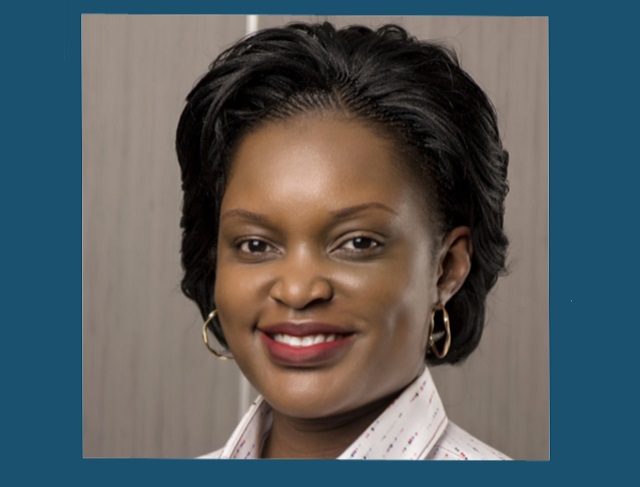
dfcu, one of Uganda’s largest banks by assets has been running a Women in Business initiative/programme since 2007. The Independent’s Julius Businge spoke to Victoria Byenkya, the Manager for the programme on how it is empowering women to succeed in business.
Briefly share the overview of the initiative?
The programme was established in February 2007 to create an enabling environment for women entrepreneurs to thrive in a highly competitive space where they ordinarily maybe facing numerous challenges. It provides financial management and literacy training, networking opportunities, business coaching, mentoring and preferential borrowing rates. Our approach is to offer solutions that adequately meet the unique financial needs of women in categories including young professionals, entrepreneurs or traders and those in agro-business. The head office team is comprised of two people who are supported by Branch Champions and Regional Managers.
How would you describe the journey so far covered?
We currently have over 250, 000 women registered with us for this initiative. Of these, 50, 000 have benefited from the capacity building sessions and over 20, 000 have benefited from our loan offerings. This is significant considering the challenges in accessing credit. As part of the programme, we have an established Business Advisory Centre to offer one-on-one advisory services to our women. Our partners like the Uganda Law Society, the Institute of Certified Public Accountants of Uganda, Investment Clubs, Enterprise Uganda and Makerere University Business School provide a vast range of resources we can tap into to make this programme a success.
How do you rate the success of this programme to-date?
Based on a report that one of our partners has done I would put it at 54%. The women that we started with have regularly shared their success stories and these range from businesses that started out with a handful of employees to larger workforces which speaks to employment creation; we have several businesses that started out with very low turnovers and are now turning over millions and paying more taxes. We have a lot more women accessing credit facilities to grow their businesses, formalizing their businesses which was a challenge in the past but also doing a lot for their communities. We still have a long way to go because we see opportunities in women yarning for business knowledge.
Most businesses succeed once they embrace partnerships. How has this worked under this initiative?
Exposure and networking is a critical part of the Rising Woman initiative. The women entrepreneurs who take part are not only encouraged to see out partnerships but also facilitated to do so. Early this year, we sponsored 10 of the top women in business on a study excursion in Nairobi, Kenya. They are now better placed to tap into the Kenyan market for further networking, marketing of products, benchmarking, and guidance in the event they want to engage in cross border trade. We have also established linkages in-country where we take our women for value addition or further studies.
How is this initiative feeding into government’s move to empower women in business?
Women have for a long time owned and run businesses but have not been recognised or given credit or maybe floated for government tenders. You also recall that societies never fronted a woman. The programme has enabled them gain managerial and related skills. Government has made progress in empowering women. We are complementing this move by the government. Government needs to have partnerships with financial institutions. It also needs to be strict on accountability so that the funds allocated for this purpose in the budget are well utilised.
How have you deployed lessons learned from institutions investing in similar initiatives outside Uganda?
In Nairobi people engage their families in their businesses right from inception to ensure continuity. This is what Ugandans have to do.
What kind of exposure have the beneficiaries gotten from the study tours they have been on courtesy of dfcu?
As part of the broader Women in Business programme, we conduct at least two in-country study tours for an average of 80 women. Depending on the focus for the year, the beneficiaries are exposed to best practice in urban farming, value chain addition, food security and more. In the past, we have taken groups of women to Turkey and China and more recently Nairobi. The Nairobi tour was put the women on contact with Kenyan women who had been in business for over two decades exposing them to skills in building lasting empires through tough economic times.
What management tips would you advise women managers/entrepreneurs to deploy?
They need to learn to delegate; they should not micro-manage or try to be the alpha and omega. Let them join networks or form partnerships. Social media is also very good – they need to learn to become tech-survy so they can take their businesses to the next level. Let them join sectors of their choice but follow the right steps for growing a business.
How best can women entrepreneurs go about their business without compromising their domestic and other social related roles?
It is no longer a duty for a woman to do everything at home. We need to learn to trust other people to do certain things for us so we can have our other arm to do our business. They need to identify and hire the right people in their business and pay them well.
And lastly, is this programme going to end at some point?
It is here to stay. Women empowerment is top on our agenda as a bank. We will continue to invest in women entrepreneurship because we believe it will benefit the women in business. We are continuing to grow, seeking strategic partnerships. I urge women out there to come and join the programme.
****
 The Independent Uganda: You get the Truth we Pay the Price
The Independent Uganda: You get the Truth we Pay the Price


